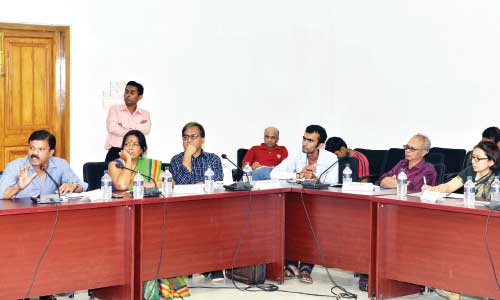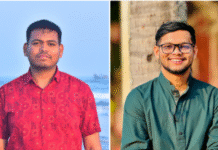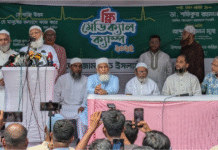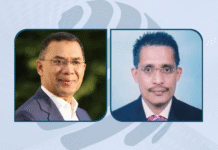Academics, journalists and campaigners on Saturday demanded incorporation of a chapter in the constitution making provisions of ensuring internal democracy in political parties to establish the true rule of people in the country.
They made the demand at a national dialogue on ‘developing framework for political parties: chapter in the Bangladesh constitution’ held at Nabab Nawab Ali Chowdhury Senate Bhaban at the Dhaka University.
Department of international relations of the university organised the dialogue to get opinions on their draft framework of the proposed chapter for political parties in the constitution.
The draft framework defines ‘political party’ as a group of citizens who pursues a common social goal and contributes by democratic means to determine national politics.
Article 2 of the draft chapter reads, ‘Citizens have the right to form political parties provided that the programme and charter of the party are not contrary to the provisions of the Bangladesh Constitution.’
Article 3 says, ‘Political parties that have membership based solely on ethnic, linguistic, gender, religion, or religion basis are prohibited.’
It also says that political parties must democratically elect all officials through secret ballot under the supervision of the Election Commission and no official can hold the same office for more than two consecutive terms of three years.
International relations professors Imtiaz Ahmed, Amena Mohsin and Delwar Hossain stressed the need for incorporation of the chapter in the constitution.
Referring to their study on constitutions of 25 countries, they said that constitutions of 20 of the 25 countries had separate provisions on political parties elaborating their functions while Bangladesh had only an article that just gave a vague definition of political parties.
The discussants said that Bangladesh was facing a crisis of democracy as political parties were neither accountable to the people nor responsible to people’s aspirations.
Moderating the session Imtiaz said that the article 152 of Bangladesh constitution did not bring the political parties within a regulatory framework and lacked clear understanding of political activities.
Sujon secretary Badiul Alam Majumder said that for a democratic country political parties must have internal democracy.
Dhaka University professor Asif Nazrul said that how the political parties would establish democracy in the country if they did not practice democracy in the party.
Journalist Amanullah Kabir said that the executive power the prime minister enjoyed as the head of the party, government and leader of the house did not exist in other democracies.
He said all the amendments brought to the constitutions had made for the benefits of an individual not for the people.
Former Janagirnagar University professor Dilara Zaman said that representation of men and women in the political parties should be emphasised in the draft framework.
Nijera Kari coordinator Khushi Kabir said that most of the existing lawmakers were businessmen who were not responsible to whom they represent.
Transparency International Bangladesh executive director Iftekharuzzaman, New Age editor Nurul Kabir, journalists Nayeemul Islam Khan, Mizanur Rahman Khan and Ajoy Das Gupta and professor Fakrul Alam, among others, addressed the programme.
They made the demand at a national dialogue on ‘developing framework for political parties: chapter in the Bangladesh constitution’ held at Nabab Nawab Ali Chowdhury Senate Bhaban at the Dhaka University.
Department of international relations of the university organised the dialogue to get opinions on their draft framework of the proposed chapter for political parties in the constitution.
The draft framework defines ‘political party’ as a group of citizens who pursues a common social goal and contributes by democratic means to determine national politics.
Article 2 of the draft chapter reads, ‘Citizens have the right to form political parties provided that the programme and charter of the party are not contrary to the provisions of the Bangladesh Constitution.’
Article 3 says, ‘Political parties that have membership based solely on ethnic, linguistic, gender, religion, or religion basis are prohibited.’
It also says that political parties must democratically elect all officials through secret ballot under the supervision of the Election Commission and no official can hold the same office for more than two consecutive terms of three years.
International relations professors Imtiaz Ahmed, Amena Mohsin and Delwar Hossain stressed the need for incorporation of the chapter in the constitution.
Referring to their study on constitutions of 25 countries, they said that constitutions of 20 of the 25 countries had separate provisions on political parties elaborating their functions while Bangladesh had only an article that just gave a vague definition of political parties.
The discussants said that Bangladesh was facing a crisis of democracy as political parties were neither accountable to the people nor responsible to people’s aspirations.
Moderating the session Imtiaz said that the article 152 of Bangladesh constitution did not bring the political parties within a regulatory framework and lacked clear understanding of political activities.
Sujon secretary Badiul Alam Majumder said that for a democratic country political parties must have internal democracy.
Dhaka University professor Asif Nazrul said that how the political parties would establish democracy in the country if they did not practice democracy in the party.
Journalist Amanullah Kabir said that the executive power the prime minister enjoyed as the head of the party, government and leader of the house did not exist in other democracies.
He said all the amendments brought to the constitutions had made for the benefits of an individual not for the people.
Former Janagirnagar University professor Dilara Zaman said that representation of men and women in the political parties should be emphasised in the draft framework.
Nijera Kari coordinator Khushi Kabir said that most of the existing lawmakers were businessmen who were not responsible to whom they represent.
Transparency International Bangladesh executive director Iftekharuzzaman, New Age editor Nurul Kabir, journalists Nayeemul Islam Khan, Mizanur Rahman Khan and Ajoy Das Gupta and professor Fakrul Alam, among others, addressed the programme.
Source: New Age










